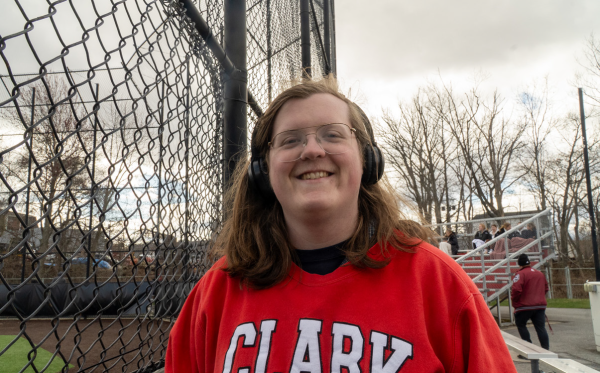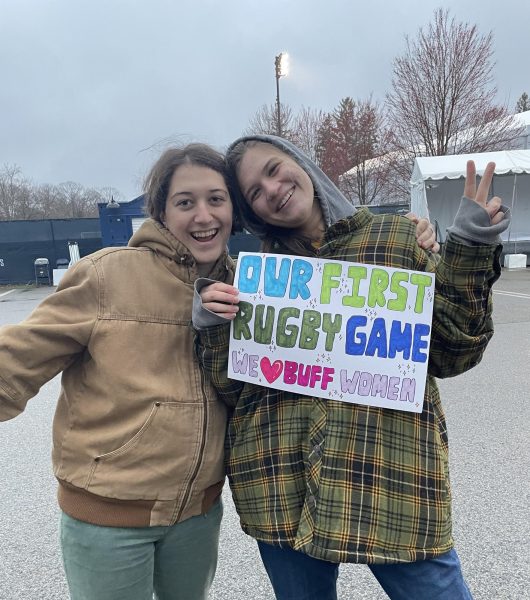Angel Reese, Caitlin Clark and the “You Can’t See Me” Taunt
After LSU forward Angel Reese taunted Iowa guard Caitlin Clark during the NCAAW finals there was an uproar online, reflecting a racist double standard in sports.
The NCAA women’s basketball tournament final commenced on April 2, 2023. The final score of the game, 102-85, reflected a triumphant win on behalf of the Louisiana State University (LSU) Tigers against the Iowa Hawkeyes. However, the game itself was not the majority of viewers’ main focus after watching the two teams compete. Instead, it was LSU forward Angel Reese’s celebration that caused the most headlines and Twitter feuds following the final.
What Happened:
Reese celebrated the Tiger’s fourth-quarter lead by doing a motion highly popularized by wrestler John Cena involving waving one hand in front of her face. The motion is known as the “you can’t see me” taunt. Reese followed the motion by tapping her ring finger, all of which was directed at Hawkeye guard Caitlin Clark. Video of Reese’s gesture to Clark went viral, which resulted in heavy backlash against the sophomore. Many took online to criticize Reese for unsportsmanlike behavior. Within a few hours, the word “classless” was trending on Twitter.
The negative response that Reese received was both unexpected and uncalled for. All season fans had been watching Clark act in a similar manner while competing. In fact, Clark used the same gesture earlier during March Madness against Louisville, during the game that allowed Iowa to enter the final four. Clark’s performance of the “you can’t see me” taunt was even celebrated by John Cena, who took to Twitter to write “Even if they could see you… They couldn’t guard you!”.
So, why were Reese and Clark judged in such opposing ways? Why did Reese receive such ridicule online while Clark was praised for the same behavior? Both players had outstanding seasons this year, with Reese being named Most Outstanding Player and Clark being named 2023 Player of the Year according to multiple associations. Therefore, the difference in reception cannot be due to performance or skill level.
Rather, the answer reflects a more unfortunate, racist reality within society. Reese is Black, and Clark is white.
“I don’t fit in the box that y’all want me to be in. I’m too hood, I’m too ghetto, y’all told me that all year. When other people do it, y’all don’t say nothing. This was for the girls that look like me.”- Reese
Unfortunately, this is not the first time that we have seen a racist double standard in the sports realm. Black athletes are constantly under strict supervision when it comes to expressing themselves. Meanwhile, white athletes are able to perform the same activities with little to no judgment at all. This is true across all major and national league sports.
In fact, many studies have proven that when it comes to NFL penalty calls for unsportsmanlike conduct, at least 90% are called against black players for their in-game celebrations. White football players, however, are able to celebrate often without consequence. Consider for example the viral video of Travis Kelce from the Kansas City Chiefs celebrating a touchdown during the superbowl this year. While Black athletes get punished or ridiculed, white athletes get praised for their celebratory outbursts.
Many have taken to calling Clark the “great white hope” following the final game. The term refers to the racist practice of sports fans and institutions hyping up a white athlete for the main purpose of dismantling or challenging a successful Black athlete. By doing so, it ensures that Black athletes do not become the “face” of sports or are deemed as being more prominent in the sports realm over white people.
The term gained popularization from the 1970 film of the same name, which depicted the story of Jack Jefferson, an African-American boxer. White boxer James Jeffries, who faced Jefferson, was deemed “the great white hope,” as he was expected to challenge Jefferson’s talent in the ring.
The same term has been used for athletes such as Austin Reeves and Conor McGregor. As women’s basketball fans have taken to celebrating black athletes more often (rightfully so), many fear that this will take away from “white accomplishments” – hence why many have taken to titling Clark the “great white hope” of women’s collegiate basketball.
Clark’s Response:
During interviews in the following days after the game, and online upheaval, Clark spoke out about the ridicule Reese had been facing.
“I don’t think Angel should be criticized at all…I’m just one that competes, and she competed. I think everybody knew there was going to be a little trash talk in the entire tournament. It’s not just me and Angel.” – Clark
Clark even went on to remark about Reese’s skills on the court. Clark held nothing but praise for Reese as an athlete, while also ridiculing the double standard that exists between male and female sports.
“Angel is a tremendous, tremendous player. I have nothing but respect for her. I love her game – the way she rebounds the ball, scores the ball, is absolutely incredible. I’m a big fan of her and even the entire LSU team. They played an amazing game… Men have always had trash talk… You should be able to play with that emotion… That’s how every girl should continue to play.” – Clark
Reese responded to these remarks on Twitter, retweeting a post that simply said “The end” to Clark’s statements. Both of the athletes are set to return for the 2023-24 season. Many are already theorizing about a rivalry between the two athletes. However, from these responses, I do not believe there is a real rivalry to look forward to. Neither Clark nor Reese have reflected poorly on one another besides statements of Reese stating she was simply giving Clark the energy back that she had initiated. Reese has also talked positively of Clark, stating that she is a “hell of an athlete.” So as for a rivalry, I simply do not think there is going to be one during the coming season, at least not between Clark and Reese.
While it is great that Clark spoke out about the incident, it should not take a white athlete speaking out for our society to not judge Black athletes. This issue goes beyond sports, as it is a part of a wider system that allows for discrimination such as this to exist. It is extremely unfortunate that this double standard exists, and the only way to stop it is to begin judging athletes equally for their actions, regardless of race.
“It’s unapologetically you. That’s what I did for tonight. It was bigger than me tonight. It was bigger than me. Twitter is going to go on a rage every time, and I’m happy. I feel like I’ve helped grow women’s basketball this year” – Reese, reflecting on the events.


